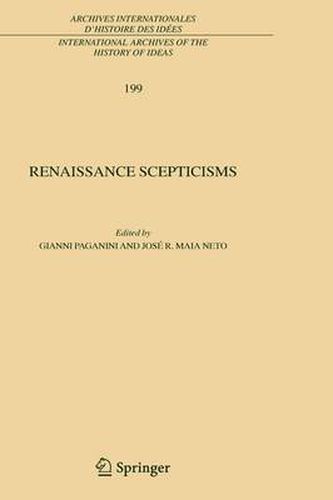Readings Newsletter
Become a Readings Member to make your shopping experience even easier.
Sign in or sign up for free!
You’re not far away from qualifying for FREE standard shipping within Australia
You’ve qualified for FREE standard shipping within Australia
The cart is loading…






This title is printed to order. This book may have been self-published. If so, we cannot guarantee the quality of the content. In the main most books will have gone through the editing process however some may not. We therefore suggest that you be aware of this before ordering this book. If in doubt check either the author or publisher’s details as we are unable to accept any returns unless they are faulty. Please contact us if you have any questions.
Even if specific pieces of research (on the sources or on individual authors, such as Pico, Agrippa, Erasmus, Montaigne, Sanches etc.) have given and are still producing significant results on Renaissance scepticism, an overall synthesis comprising the entire period has not been achieved yet. No predetermined idea of that complex historical subject that is Renaissance scepticism underlies this book, and we want to sacrifice the complexity of movements, personalities, tendencies and interpretations to any sort of a priori unity of theme even less. We acknowledge unhesitatingly that we had always thought of scepticisms in the plural, and believe that the different contexts (philosophical, religious, cultural) in which these forms grew up must also be taken into account. Furthermore, given the transversal nature and provocative character of the sceptical challenge, this book contains essays also on philosophers who, without being sceptics and sometimes engaged in fighting scepticism, nevertheless took up its challenge.
The main authors considered in this book are: Vives, Castellio, Agrippa, Pedro de Valencia, Pico, Sanchez, Montaigne, Charron, Bruno, Bacon, and Campanella. The various essays in the book show the relevance of the philosophical thought of authors little known by the general public and put in new perspective important aspects of the thought of some of the great thinkers of the Renaissance.
$9.00 standard shipping within Australia
FREE standard shipping within Australia for orders over $100.00
Express & International shipping calculated at checkout
This title is printed to order. This book may have been self-published. If so, we cannot guarantee the quality of the content. In the main most books will have gone through the editing process however some may not. We therefore suggest that you be aware of this before ordering this book. If in doubt check either the author or publisher’s details as we are unable to accept any returns unless they are faulty. Please contact us if you have any questions.
Even if specific pieces of research (on the sources or on individual authors, such as Pico, Agrippa, Erasmus, Montaigne, Sanches etc.) have given and are still producing significant results on Renaissance scepticism, an overall synthesis comprising the entire period has not been achieved yet. No predetermined idea of that complex historical subject that is Renaissance scepticism underlies this book, and we want to sacrifice the complexity of movements, personalities, tendencies and interpretations to any sort of a priori unity of theme even less. We acknowledge unhesitatingly that we had always thought of scepticisms in the plural, and believe that the different contexts (philosophical, religious, cultural) in which these forms grew up must also be taken into account. Furthermore, given the transversal nature and provocative character of the sceptical challenge, this book contains essays also on philosophers who, without being sceptics and sometimes engaged in fighting scepticism, nevertheless took up its challenge.
The main authors considered in this book are: Vives, Castellio, Agrippa, Pedro de Valencia, Pico, Sanchez, Montaigne, Charron, Bruno, Bacon, and Campanella. The various essays in the book show the relevance of the philosophical thought of authors little known by the general public and put in new perspective important aspects of the thought of some of the great thinkers of the Renaissance.